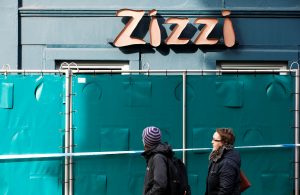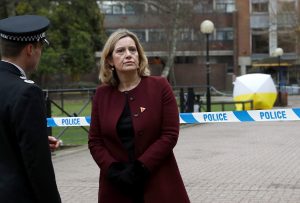
By Christian Lowe and Katya Golubkova
MOSCOW (Reuters) – Russia said on Wednesday it would respond in kind to the mass expulsion of Russian diplomats by the West over the poisoning of former Russian double agent Sergei Skripal in the English city of Salisbury.
What began as a row between London and Moscow after Britain accused Russia of using a nerve agent to poison Skripal and his daughter has now snowballed into an international chorus of rebuke for the Kremlin, with even some friendly governments ejecting Russian diplomats.
Adding to the list on Wednesday, Slovakia, Malta and Luxembourg each recalled their ambassador in Moscow for consultations, while Montenegro said it would expel a Russian diplomat. Slovakia and Montenegro, while both members of the U.S.-led NATO alliance, are traditionally close to Russia.
The biggest demarche came from the United States, which on Monday said it was expelling 60 Russian diplomats. That dented Russian President Vladimir Putin’s hopes of forging a friendly relationship with U.S. President Donald Trump.
Valentina Matviyenko, a Kremlin loyalist and speaker of the upper house of parliament, said Russia would retaliate.
“Without a doubt, Russia, as is diplomatic practice, will respond symmetrically and observe parity when it comes to the number of diplomats,” RIA news agency quoted her as saying.
Russian Defence Minister Sergei Shoigu said a Russian military aircraft had, for the first time since the Cold War, conducted a training flight via the North Pole to North America, RIA news agency reported.
There was no immediate indication that the flight was linked to Russia’s standoff with the West. The U.S. navy is holding a five-week training exercise in the Arctic Circle.
COLD WAR ECHOES
In total, more than 100 Russian diplomats are to be sent home from states ranging from Denmark to Australia, the biggest Western expulsion of Russian diplomats since the height of the Cold War.
Moscow has denied being behind the attack on the Skripals and says its adversaries are using it to whip up a campaign of “Russophobia.”
Skripal, 66, a double agent who was swapped in a spy exchange deal in 2010 and went to live in England, and Yulia Skripal, 33, were found unconscious on a public bench in a shopping center in Salisbury on March 4. They remain critically ill in hospital from the attack in which, British authorities say, a Soviet-era nerve toxin called Novichok was used.
Russia has already expelled 23 British diplomats, a tit-for-tat response to Britain’s expulsion of the same number of staff at the Russian embassy in London.
Adding to a drum beat of tough rhetoric coming from Moscow and London, the Russian foreign ministry raised the prospect British intelligence services had poisoned Skripal and his daughter.
“If convincing evidence to the contrary is not presented to the Russian side we will consider that we are dealing with an attempt on the lives of our citizens,” the ministry said in a statement.
In Australia, whose government said on Tuesday it would expel two diplomats, the Russian ambassador, Grigory Loginov, told reporters the world will enter into a “Cold War situation” if the West persists with its bias against Russia.
Two days after the United States announced the expulsion of Russian diplomats, there was still no sign of how exactly Russian planned to respond – an indication, perhaps, that the scale of the Western action caught Moscow off guard.
Interfax news agency quoted Russian Deputy Foreign Minister Sergei Ryabkov as saying Moscow would assess the level of hostility in Washington and London before deciding how to retaliate.
(Additional reporting by Reuters bureaux; Editing by Richard Balmforth)



